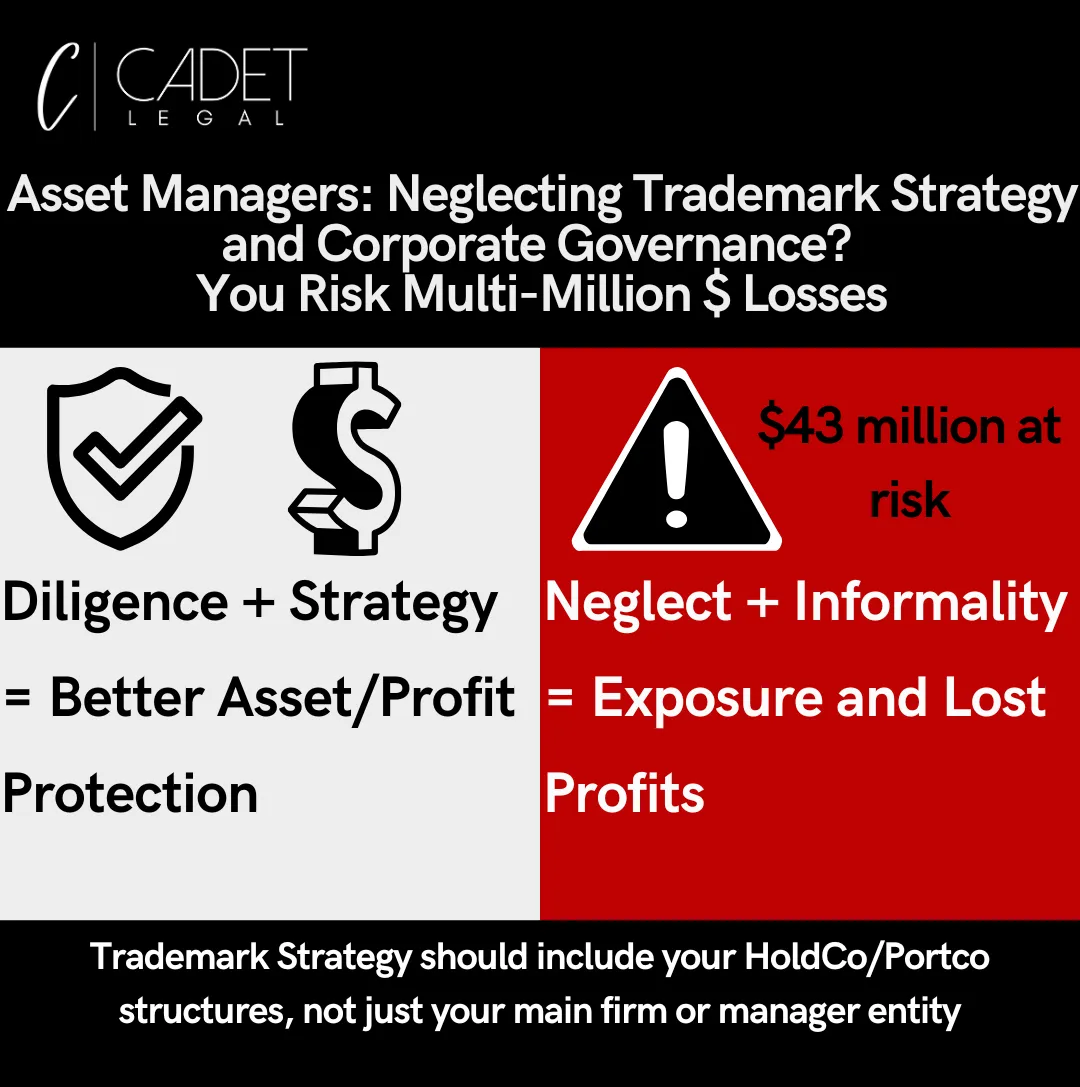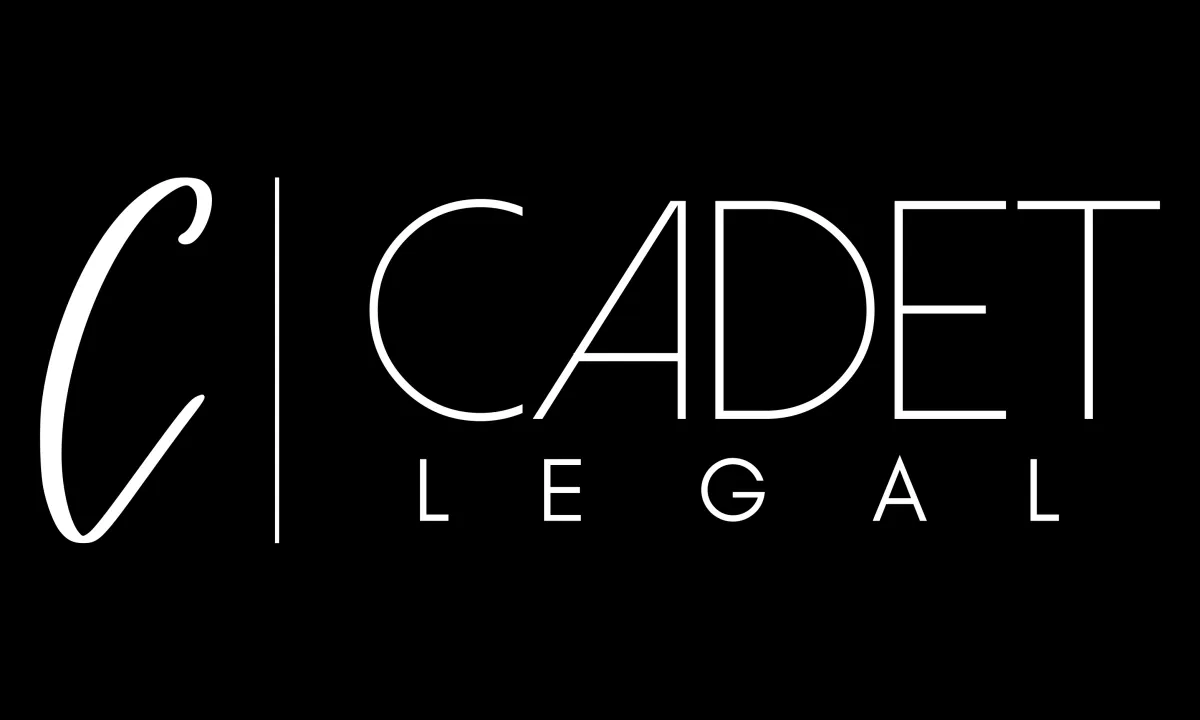
Hey Asset Managers – You Should Care about Trademark Strategy and Corporate Governance Too
Asset managers often think of intellectual property and corporate governance only from the standpoint of the profitability and operational efficiency of their portfolio companies. However, in its recent decision in Dewberry Group, Inc. v. Dewberry Engineers Inc., the Supreme Court reminds asset managers that (i) they can be sued for trademark infringement based on their firm or HoldCo names and (ii) maintaining good corporate governance is not just a formality, it affects liability across various entities in their structure charts.
What was Dewberry about?
Dewberry addressed how profits should be calculated for trademark infringement awards under the federal Lanham Act. Dewberry Engineers, the holder of the "Dewberry" trademark, sued Dewberry Group, a real estate company, for infringing its mark. Dewberry Group provided services to a network of separately incorporated affiliates, which owned rental properties and earned substantial profits, while Dewberry Group itself operated at a loss and survived on cash infusions from its owner.
The District Court ruled for the plaintiffs – the real estate group was infringing on the mark of the engineers group. Aiming to reflect the "economic reality" of the business structure, the District Court treated Dewberry Group and its affiliates as a single entity for the purpose of calculating profits, resulting in a nearly $43 million award based on the affiliates' profits. The Fourth Circuit affirmed this approach, reasoning that ignoring corporate separateness would prevent companies from evading liability through formal structures.
The Supreme Court unanimously reversed, holding that under the Lanham Act, courts may only award profits ascribable to the named defendant—not to its affiliates, unless (i) those affiliates are also named as defendants or (ii) the corporate veil is properly pierced. The Court emphasized the longstanding principle of corporate separateness, noting that Dewberry Engineers had not pursued veil-piercing or added the affiliates as defendants.
The case was remanded for further proceedings, with the instruction that only Dewberry Group’s own profits, not those of its affiliates, may be considered for disgorgement under the Lanham Act.
What does this have to do with investment management beyond just the real estate context?
This should be obvious but, Dewberry shows asset managers (whether PE, VC or Real Estate) that lapses in trademark strategy and corporate governance can directly impact their bottom line.
For tax and liability reasons, asset managers focusing on PE and VC often structure their investment vehicles similarly to the real estate-focused defendant in Dewberry. That is, they form an entity through which they and their investors can invest capital in a target and reap any proceeds from that target. The SPV or fund entity is often (although not always) formed as an LLC and taxed as a partnership.
To avoid unintended self-employment tax and seclude other liabilities, these asset managers also delegate the management, administrative, and operational functions (and the corresponding compensation) to a separate “Manager” entity.
This basic investment structure aims to keep the various asset manager entities (and their bank accounts) separate apart from a contractual agreement to provide certain services (often a “management agreement”).
Had the Supreme Court not overruled the lower federal court’s decisions in Dewberry, the decision would have threatened the asset manager’s fundamental practice of separating liabilities. Since the case has been sent back to the lower courts, however, open issues remain. The Court left unresolved whether, and how, courts in general may use the Lanham Act’s “just-sum” provision or look behind accounting records to determine a defendant’s true financial gain. They also did not clarify whether veil-piercing remains available to plaintiffs back in the lower courts in this specific case.
Dewberry provides another data point on the practical, economic value of good corporate governance. Let experienced counsel like Cadet Legal advise you on your asset management structure.
Additionally, Dewberry suggests that selecting a defensible name from a trademark perspective for your main investment vehicle but neglecting to do so for your separate management entity might leave your entire investment structure exposed. It could potentially cost you those hard earned and segregated investment proceeds ($43 million in Dewberry).
To mitigate this risk, we cannot emphasize to our asset manager clients enough the importance of a professional trademark search in the selection of their entity names. We further note that performing this IP diligence on your main investment vehicle, but neglecting the same level of care in naming your manager or GP exposes you to unnecessary risk.
If you need to form a fund or set up another asset management structure, we would love to help. In that process, we will emphasize that you should also leverage our IP-focused colleagues to help you with the name you select for ALL of your entities on your proposed structure chart, not just the main vehicle.
Disclaimer: The contents of this article should not be construed as legal advice or a legal opinion on any specific facts or circumstances. Your viewing and/or use of the contents of this article do not create an attorney-client relationship with Cadet Legal. The contents are intended for general informational purposes only, and you are urged to consult with counsel concerning your situation and specific legal questions you may have.


